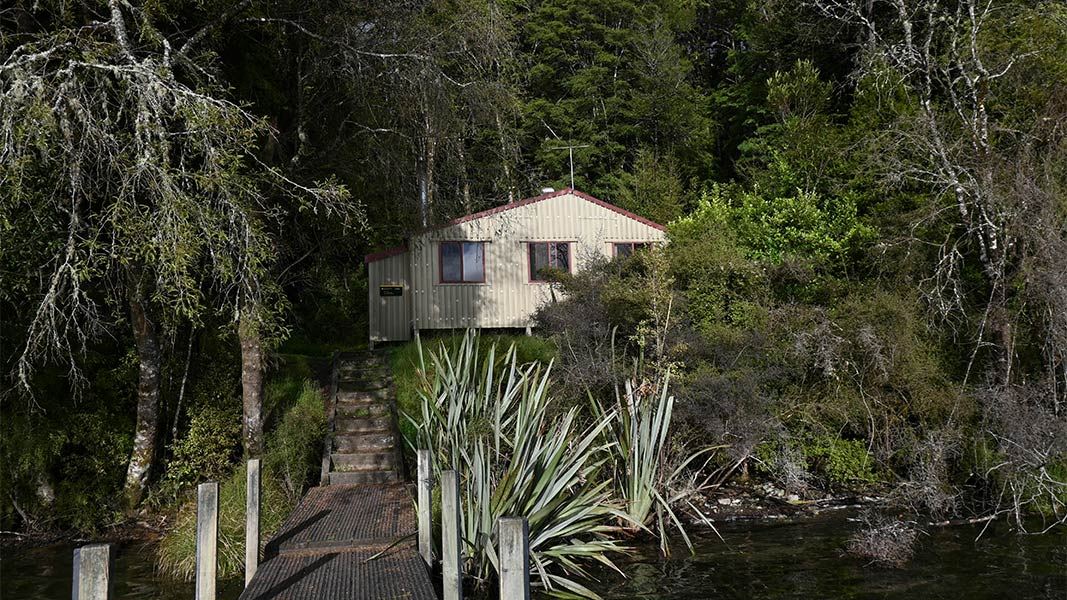Fees
- Adult (18+ years): $10 per night
- Youth (5–17 years): $5 per night
- Child/Infant (0–4 years): free
Before you go, buy 1 Standard Hut Ticket (blue for adults, yellow for youth) for each night's stay. Put this in the honesty box at the hut. Or buy a Backcountry Hut Pass that gives unlimited use at most Standard and Serviced huts for a 12 month period.
About hut tickets and passes | Retailers that sell hut tickets and passes
- Sabine Hut: 2 hr
- Morgan Hut: 4 hr
Location
NZTopo50 map sheet: BT23
Grid/NZTM2000 coordinates: E1570616, N5360626
Altitude: 480 m above sea level
On the track between the Sabine and D'Urville huts a bridge (GR E1571366 N5359831) has been removed. Trampers will have to cross a stream which is approximately 1 m deep at normal flow. After rain the stream may not be safe to cross.
Stay safe when crossing rivers
If you plan to cross unbridged rivers, know how to cross safely and be prepared for if you cannot cross.
Do not cross if the river is flooded, you cannot find safe entry and exit points or are unsure it’s safe. Turn back or wait for the river to drop. If in doubt, stay out.
Keep alpine lakes and tarns free of lindavia (lake snow)
The invasive alga lindavia is present in Lakes Rotoiti and Rotoroa. It causes lake snow – a sticky mucus that hangs below the surface of the water.
Make sure all your gear is completely dry for 48 hours before swimming or taking water from any alpine lake or tarn, including Rotomaninitua/Lake Angelus.
Use a biosecurity cleaning station at Coldwater Hut, Lakehead Hut and Sabine Hut to disinfect any boots, socks, clothing, towels or drink bottles that are wet or damp from lake or river water.
Do not touch the water in Rotomairewhenua/Blue Lake and Rotopōhueroa/Lake Constance.
Be extra careful if you’ve recently swum or filled a drink bottle from Lakes Rotoiti or Rotoroa.
Nelson Lakes National Park Visitor Centre
| Phone: | +64 3 521 1806 |
| Email: | nelsonlakesvc@doc.govt.nz |
| Address: | View Road St Arnaud 7072 |
| Hours: | Visitor centre hours and services |
Whakatū/Nelson Visitor Centre
| Phone: | +64 3 546 9339 |
| Email: | nelsonvc@doc.govt.nz |
| Address: | Millers Acre/Taha o te Awa 1/37 Halifax Street Nelson 7010 |
| Hours: | Visitor centre hours and services |
